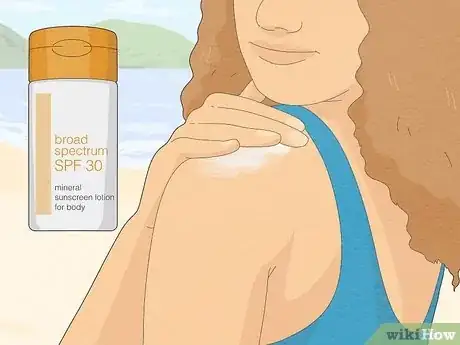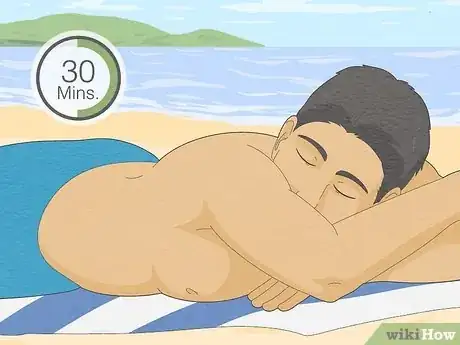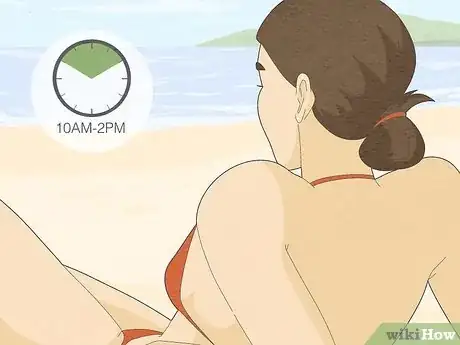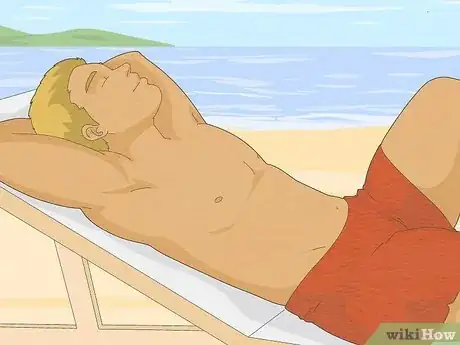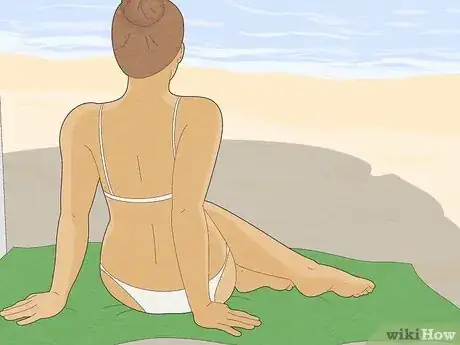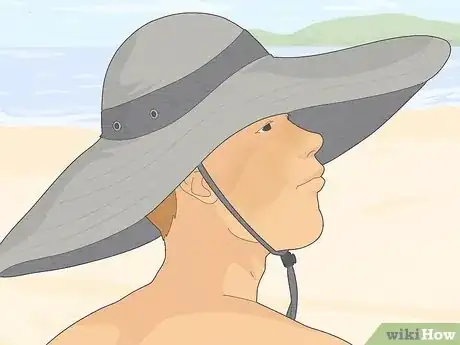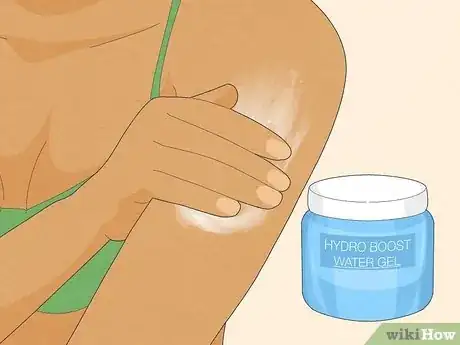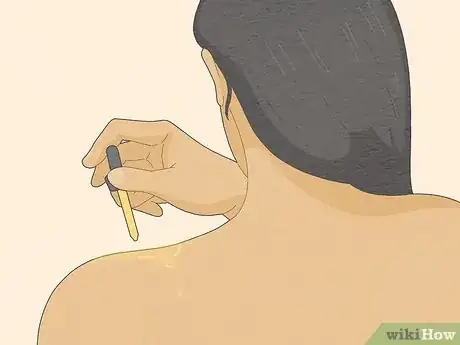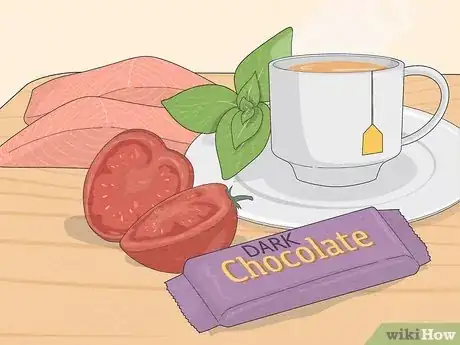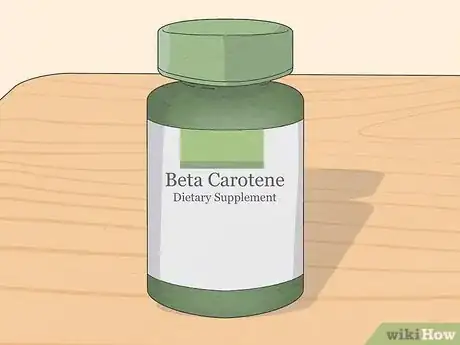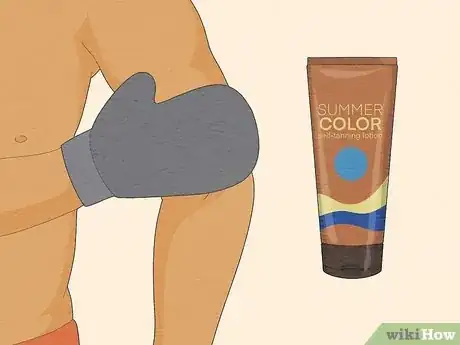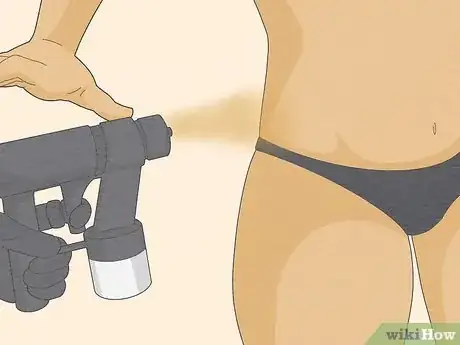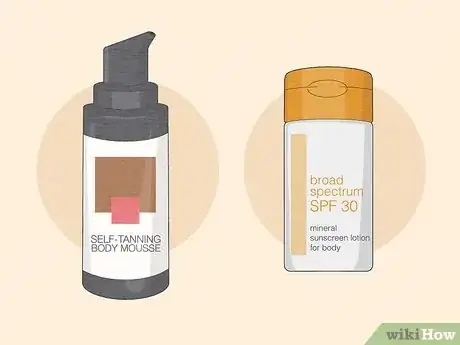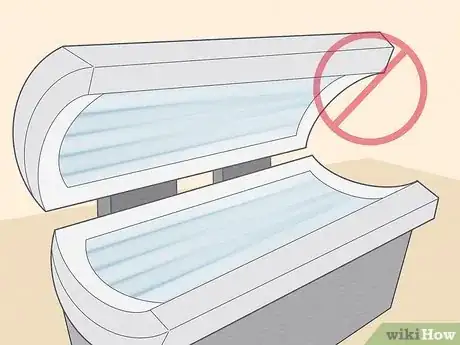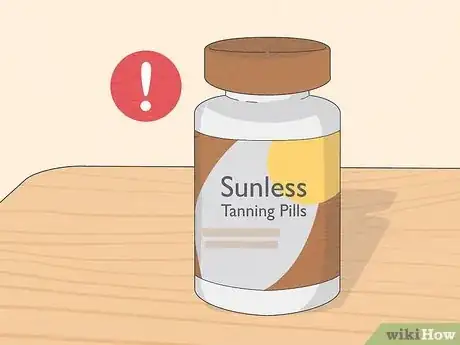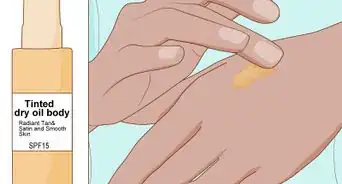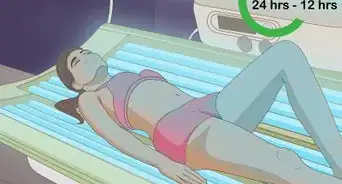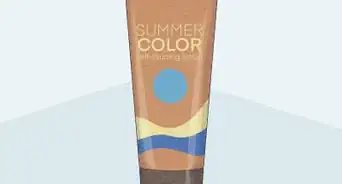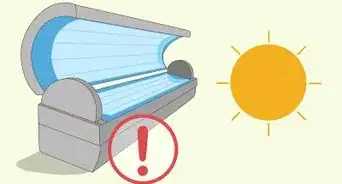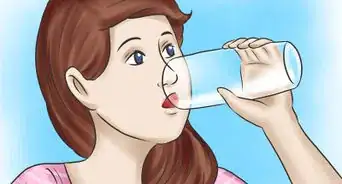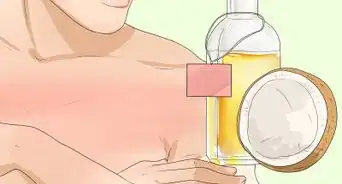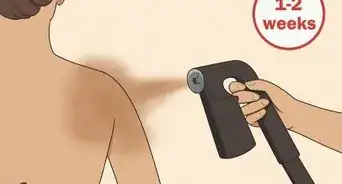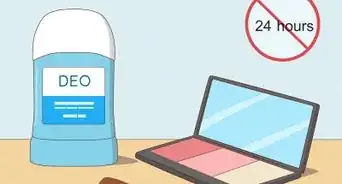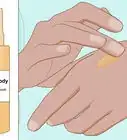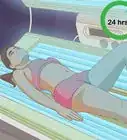This article was co-authored by Diana Yerkes and by wikiHow staff writer, Glenn Carreau. Diana Yerkes is a Skincare Professional and the Lead Esthetician at Rescue Spa in New York City, New York. With over 15 years of experience, Diana helps others with their skin care needs by incorporating natural and high-performing products and treatments into their routines while providing nutrition insights and educating clients on better skin care habits. Diana is a member of the Associated Skin Care Professionals (ASCP) and holds certifications from the Wellness for Cancer and Look Good Feel Better programs. She received her esthetics education from the Aveda Institute, the International Dermal Institute, and the Biologique Research Academy.
There are 14 references cited in this article, which can be found at the bottom of the page.
wikiHow marks an article as reader-approved once it receives enough positive feedback. In this case, 90% of readers who voted found the article helpful, earning it our reader-approved status.
This article has been viewed 939,704 times.
Do you want a sun-kissed glow but don't want to increase your likelihood of getting wrinkles or cancer? The truth is that any kind of sun tanning is associated with skin damage and is not recommended by dermatologists—but there are ways to give your skin extra protection. If you're determined to get a tan (or spend a lot of time outdoors), read on for our guide to tanning as safely as possible.
Steps
Expert Q&A
-
QuestionIs it good to avoid the sun entirely?
 Diana YerkesDiana Yerkes is a Skincare Professional and the Lead Esthetician at Rescue Spa in New York City, New York. With over 15 years of experience, Diana helps others with their skin care needs by incorporating natural and high-performing products and treatments into their routines while providing nutrition insights and educating clients on better skin care habits. Diana is a member of the Associated Skin Care Professionals (ASCP) and holds certifications from the Wellness for Cancer and Look Good Feel Better programs. She received her esthetics education from the Aveda Institute, the International Dermal Institute, and the Biologique Research Academy.
Diana YerkesDiana Yerkes is a Skincare Professional and the Lead Esthetician at Rescue Spa in New York City, New York. With over 15 years of experience, Diana helps others with their skin care needs by incorporating natural and high-performing products and treatments into their routines while providing nutrition insights and educating clients on better skin care habits. Diana is a member of the Associated Skin Care Professionals (ASCP) and holds certifications from the Wellness for Cancer and Look Good Feel Better programs. She received her esthetics education from the Aveda Institute, the International Dermal Institute, and the Biologique Research Academy.
Skincare Professional No! Protect yourself from the sun, but don't necessarily avoid it altogether. Sun exposure is tricky, because the only way to get vitamin D into your body is from the sun. However, there's no way to reverse sun damage, so if you get a sunburn, you're going to see the results of that later in your life.
No! Protect yourself from the sun, but don't necessarily avoid it altogether. Sun exposure is tricky, because the only way to get vitamin D into your body is from the sun. However, there's no way to reverse sun damage, so if you get a sunburn, you're going to see the results of that later in your life. -
QuestionI heard that eating tomatoes and carrots can make you naturally tan, is this true?
 Community AnswerYes, eating carrots and tomatoes will make you a natural tan.
Community AnswerYes, eating carrots and tomatoes will make you a natural tan. -
QuestionCan one still tan using a sunscreen?
 Waffels14Community AnswerYes. Using sun screen is the healthiest way to tan without worrying about sun damage. Use at least SPF 10 for a gradual, but noticeable, tan.
Waffels14Community AnswerYes. Using sun screen is the healthiest way to tan without worrying about sun damage. Use at least SPF 10 for a gradual, but noticeable, tan.
References
- ↑ https://www.betterhealth.vic.gov.au/health/conditionsandtreatments/skin-cancer-tanning
- ↑ https://www.cdc.gov/cancer/skin/basic_info/sun-safety.htm
- ↑ https://www.fda.gov/consumers/consumer-updates/tips-stay-safe-sun-sunscreen-sunglasses
- ↑ https://my.clevelandclinic.org/health/articles/5240-sun-damage-protecting-yourself
- ↑ https://kidshealth.org/en/teens/tanning.html
- ↑ https://www.cdc.gov/cancer/skin/basic_info/sun-safety.htm
- ↑ https://www.mayoclinic.org/healthy-lifestyle/adult-health/in-depth/skin-care/art-20048237
- ↑ https://www.ncbi.nlm.nih.gov/pmc/articles/PMC3140123/
- ↑ https://www.bbc.co.uk/sn/humanbody/truthaboutfood/young/tomatoes.shtml
- ↑ https://www.mountsinai.org/health-library/supplement/beta-carotene
- ↑ http://www.mayoclinic.org/healthy-lifestyle/adult-health/in-depth/sunless-tanning/art-20046803?pg=2
- ↑ http://www.mayoclinic.org/healthy-lifestyle/adult-health/in-depth/sunless-tanning/art-20046803
- ↑ https://newsnetwork.mayoclinic.org/discussion/mayo-clinic-q-and-a-theres-no-such-thing-as-a-safe-healthy-tan/
- ↑ https://www.skincancer.org/risk-factors/tanning/
- ↑ https://www.fda.gov/cosmetics/cosmetic-products/tanning-pills
About This Article
To tan safely, try a professional spray tan or a home tanning lotion, both of which are safe for your skin. Although a tanning bed exposes you to harmful UVA rays, you can take some safety precautions, like using goggles over your eyes and limiting the amount of time you spend in the tanning bed. Finally, instead of tanning, focus on protecting your skin by putting on a SPF 30 or higher sunscreen before going outside, staying out of the sun between 10am and 4pm, and covering up with long sleeves or an umbrella. To learn how to avoid the dangers of sun lamps, keep reading!
